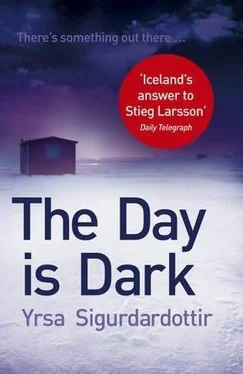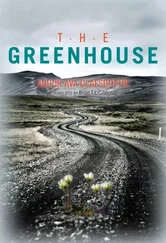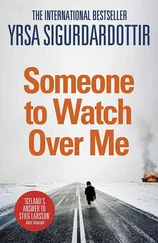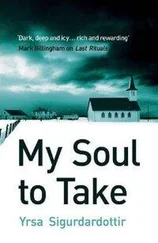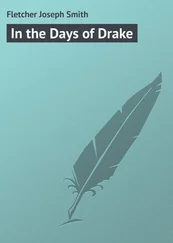Yrsa Sigurdardóttir - The Day Is Dark
Здесь есть возможность читать онлайн «Yrsa Sigurdardóttir - The Day Is Dark» весь текст электронной книги совершенно бесплатно (целиком полную версию без сокращений). В некоторых случаях можно слушать аудио, скачать через торрент в формате fb2 и присутствует краткое содержание. Жанр: Детектив, на английском языке. Описание произведения, (предисловие) а так же отзывы посетителей доступны на портале библиотеки ЛибКат.
- Название:The Day Is Dark
- Автор:
- Жанр:
- Год:неизвестен
- ISBN:нет данных
- Рейтинг книги:5 / 5. Голосов: 1
-
Избранное:Добавить в избранное
- Отзывы:
-
Ваша оценка:
- 100
- 1
- 2
- 3
- 4
- 5
The Day Is Dark: краткое содержание, описание и аннотация
Предлагаем к чтению аннотацию, описание, краткое содержание или предисловие (зависит от того, что написал сам автор книги «The Day Is Dark»). Если вы не нашли необходимую информацию о книге — напишите в комментариях, мы постараемся отыскать её.
Already an international bestseller, this fourth book to feature Thóra Gudmundsdóttir ('a delight' – Guardian) is chilling, unsettling and compulsively readable.
The Day Is Dark — читать онлайн бесплатно полную книгу (весь текст) целиком
Ниже представлен текст книги, разбитый по страницам. Система сохранения места последней прочитанной страницы, позволяет с удобством читать онлайн бесплатно книгу «The Day Is Dark», без необходимости каждый раз заново искать на чём Вы остановились. Поставьте закладку, и сможете в любой момент перейти на страницу, на которой закончили чтение.
Интервал:
Закладка:
‘It was someone from the village.’ Friðrikka made this assertion like a stubborn child. ‘Anything else is out of the question. None of us would have wanted to do her harm, even if she did complain to the boss.’
Eyjólfur ignored her. ‘Maybe it was an outsider, but not someone from the village. Tourists who wandered into the area. A hiker, one of those fresh air freaks.’
‘Excuse me, but I doubt this woman was killed by a “fresh air freak”.’ Thóra couldn’t help but smile at his description.
‘Why not? The weather was bad and visibility was poor; maybe he thought she was a polar bear. She was wearing Arnar’s furry boots and hat.’ Eyjólfur appeared determined to convince himself of his own hypothesis.
‘Yes, that could be it,’ blurted out Friðrikka, in agreement with Eyjólfur for the first time. ‘The murderer will probably never be found, but that’s a possible explanation. She could very well have looked like some kind of animal.’
‘That explains it.’ Eyjólfur surveyed the group smugly.
‘No, come on, stop that.’ Alvar clearly didn’t appreciate the silence, or perhaps he thought it his duty to defend hikers. ‘She was attacked from behind, and people don’t try to sneak up on polar bears from behind. Nor are fresh air freaks, as you call them, prone to wandering about in a whiteout. They dig themselves down into the snow and wait for the storm to subside. They’d be even less inclined to start attacking polar bears under such circumstances.’
‘Does anyone know why she was dressed like that?’ Thóra hadn’t had time to ponder this point.
‘The weather was good that day and stayed that way into the early evening. Wouldn’t she have been wrapped up well enough when she went over to the office? Maybe she needed something a little more protective. Arnar would hardly have made a big deal out of her borrowing some of his clothing.’ Eyjólfur looked sad. ‘Just think – if only she hadn’t been wearing someone else’s clothes she would never have been mistaken for a polar bear. Those were the only garments on site that would have made her look like an animal.’
Thóra bit her tongue, wondering if his dramatics were going to extend to singing a sad song in Oddný Hildur’s memory. She allowed Alvar and Eyjólfur to continue debating the merits of the polar bear theory while she tried to get her thoughts in order. ‘Isn’t it more logical to assume that whoever came at Oddný Hildur from behind during the snowstorm actually thought she was Arnar?’ Friðrikka, Alvar and Eyjólfur stopped arguing and looked in surprise at Thóra.
‘What do you mean?’ said Eyjólfur stupidly, but then quickly added: ‘You mean the man intended to kill Arnar?’
‘Yes. Isn’t that more likely than your theory about the polar bear? Arnar wasn’t short of enemies, and his popularity hardly increased when management were informed about the harassment.’
Alvar was quick to agree to this.
Eyjólfur frowned. ‘I don’t know. He wasn’t so awful that people would have thought about killing him.’ He looked awkwardly at Friðrikka in the hope of support. ‘Right? It wasn’t like that, was it?’
Friðrikka looked from him to her lap. ‘No. Definitely not.’ She abruptly fell silent. It was as if all the air had gone out of her.
Thóra moved over next to Matthew and waited for him to finish speaking to the Danish doctor, who was packing up his things. ‘Do you still have the phone number for Oqqapia, Naruana’s partner? I need to have a word with her.’ Matthew found the slip of paper with the number on it, and Thóra stuck it in her pocket. While doing so she felt to make sure she had her mobile phone. Once she was certain she did, she asked the doctor whether she could go to the ladies’.
A young police officer followed her out into the corridor and informed her along the way that the toilet would need to be disinfected thoroughly after they left. Thóra thanked him for the information and shut the door behind her. She dialled the number and prayed silently that the woman was home. She was relieved when she heard her voice. ‘Hi, Oqqapia, this is Thóra from Iceland. I visited you a short time ago with my friend, whose name is Matthew.’
Oqqapia said she remembered her well. It sounded to Thóra as if she were completely sober. She seemed to be in a state of shock as she told Thóra the whole story of how Naruana had been arrested, and said that a group of men had come to the village to tell them that they’d possibly been infected with a serious disease. They were to remain in their homes while the investigators examined them, house by house. Thóra could hear clearly that she was frightened; the men had been wearing masks and strange outfits. It hadn’t crossed Thóra’s mind that perhaps all of the villagers had been infected by the hunter’s son. ‘Oqqapia, I’ve got to ask you to do me a favour that will probably help Naruana, and could even save his father as well.’
‘Anything. I know Naruana hasn’t killed anyone. He’s even stopped hunting.’
‘You’ve got to find Igimaq and ask him something for me. I suspect he has information that could help Naruana avoid a longer prison sentence than he deserves.’ She was met only with silence. ‘Oqqapia, this is extremely important. I’m not sure that Igimaq will tell the police anything – if they even find him. He’s much more likely to talk to you, and if you explain things to him then maybe he can be persuaded to speak to them later.’
Oqqapia spoke up hesitantly. ‘He doesn’t want to talk to me. I’ve never met him but I’m quite sure he isn’t happy with me as a daughter-in-law.’
‘You’re not unworthy of him, not at all. Igimaq realizes that, unless he’s very stupid. But that’s irrelevant. You simply need to make it clear to him that he can help his son. Him – and no one else.’ Thóra refrained from adding that it was possible even Igimaq couldn’t help. She continued while the going was good; Oqqapia hadn’t refused her request. ‘You’ve got to go to him and ask how he knew where the woman’s body could be found. Where was it lying? Did he see the person who killed her or does he know something that could explain who the murderer is?’
‘Oh, I don’t know. How can I reach him? I can’t go anywhere.’
‘You must be able to sneak away – borrow a snowmobile from your neighbours, if you have to. You’ve only been asked to stay there so you don’t infect anyone else – if you’ve even been infected. Be careful not to cough or touch Igimaq. I actually think he’s already come into contact with this disease and survived it, so he would be immune.’ He must have touched the body of his daughter when he buried her under the cairn. Usinna had more than likely died of the same thing as the drillers, whether it was the Spanish Flu or something else.
In the end Oqqapia agreed to make an effort to find the old hunter and promised to call Thóra immediately when she returned home.
Four hours later, Thóra’s phone rang. Since Thóra’s first conversation with Oqqapia, Sóley had called twice; she had started really missing her mother. Thóra decided not to mention the disease, so as not to worry Sóley unduly. She spoke to her daughter about the cold in Greenland and the heaps and heaps of snow. Sóley immediately asked her mother to convert the amount of snow into snowmen and Thóra guessed it would make one million and fourteen of them – just from the snow that she could see out of the window. The conversation she was having now with Oqqapia had a much more serious tone. She had made it out of the village on a snowmobile, as Thóra had suggested, without being followed.
‘I found him. He was in his tent. The dogs didn’t want to let me near the tent door and I’m sure they would have torn me to pieces and eaten me if they hadn’t been tethered.’
Читать дальшеИнтервал:
Закладка:
Похожие книги на «The Day Is Dark»
Представляем Вашему вниманию похожие книги на «The Day Is Dark» списком для выбора. Мы отобрали схожую по названию и смыслу литературу в надежде предоставить читателям больше вариантов отыскать новые, интересные, ещё непрочитанные произведения.
Обсуждение, отзывы о книге «The Day Is Dark» и просто собственные мнения читателей. Оставьте ваши комментарии, напишите, что Вы думаете о произведении, его смысле или главных героях. Укажите что конкретно понравилось, а что нет, и почему Вы так считаете.
